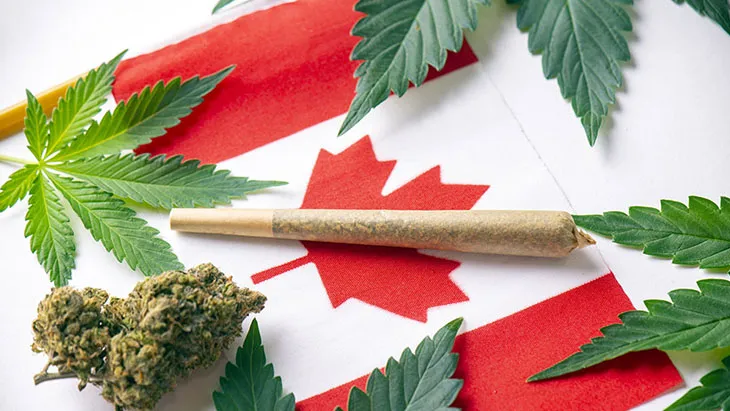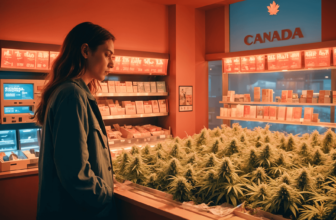NORML Canada, a leading cannabis activist group, is campaigning to increase the legal limit of THC in cannabis-infused edibles in the country. Currently capped at 10 milligrams per package, this low potency limit has significantly hindered licensed businesses from effectively competing with the illicit market. With support from the Competition Bureau of Canada and the Ontario Cannabis Store, NORML Canada has initiated a petition urging the federal government to raise the THC limit to 100 milligrams per package.
The strict regulatory landscape for edibles in Canada
In October 2018, Canada took a monumental step toward legalizing cannabis nationwide, with retail sales of cannabis extracts being authorized. However, the following year saw the imposition of strict regulations on the potency of edibles, capping their THC content at just 10 milligrams per package. In contrast, the United States, a leader in regulated markets, allows up to 100 milligrams of THC per package in some states like California.
Stifling competition signals the need for change
Jennawae Cavion, Executive Director of NORML Canada, claims that the current THC limit on edibles contributes to a significant disadvantage for legitimate businesses. In an interview with National Post, Cavion highlights legal retailers’ struggles while attempting to compete with unlicensed operators offering high-potency products. The ongoing debate on raising the THC caps has drawn support from esteemed organizations like the Competition Bureau of Canada and the Ontario Cannabis Store. The Competition Bureau asserts that it may not even be necessary to restrict THC levels so dramatically to achieve the government’s objectives. They emphasize the importance of maintaining a competitive business environment in the legal cannabis market.’
Divergent opinions on THC limits
While some parties advocate for significant changes to the current regulations, others argue that the potential public health risks associated with increasing THC limits should not be overlooked. Michael DeVillaer, Assistant Professor in Psychiatry and Behavioural Neurosciences at McMaster University, is among those expressing concerns about increasing THC caps. But Patrick Weiler, the Liberal MP sponsoring the petition, believes that addressing consumer demand for higher THC limits is crucial. Weiler argues that by increasing the THC cap, consumers will be more likely to choose regulated sources over the illicit market, further solidifying the successes of cannabis legalization in Canada.
A familiar fight against restrictive regulations
This isn’t the first time Canadian companies have called on the government to increase the THC limit. In 2022, numerous businesses requested that it be raised to 100mg per package, but their pleas were ultimately unsuccessful. The ongoing debate highlights the difficulties the cannabis market faces in striking a balance between regulation and competition while considering public health concerns. Having studied international regulations and various cannabis markets, many experts agree that finding a solution that pleases all sides may be challenging. It remains to be seen if raising the THC limit will finally give legal retailers an edge over their illicit counterparts or if further compromises and policy changes need to be made.
The struggle to find the appropriate balance between regulatory control and competitive access to high-potency cannabis products is a hot topic in Canada. With NORML Canada leading the charge to petition for an increased THC cap and established organizations like the Competition Bureau of Canada backing their efforts, it will be interesting to see how the landscape for edibles evolves in the coming years. While change may be necessary to effectively compete with illicit sales, the potential public health risks must be carefully considered in this ongoing debate.





